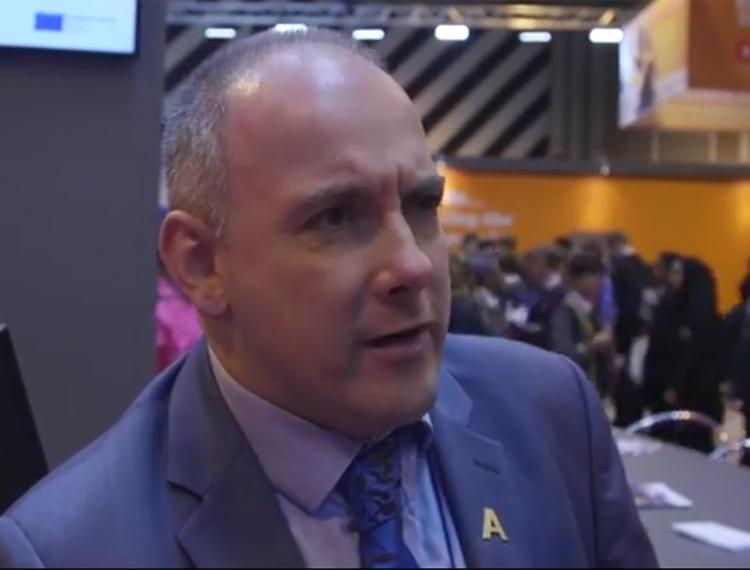Please, please, please, stop referring to Baker Clause activities as careers guidance!

An open letter to the Rt Hon Robert Halfon MP and members of the UK educational press
As chair of the Commons Education Committee, I’ve long been an admirer of your actions that support young people being able to access careers education and your support of both apprenticeships and of the Baker Clause.
I’m in awe of your ability to raise the profile of the need for our young people for the working world before they reach school leaving age and when they are in the early stages of their careers.
I’ve followed the Skills Bill with interest and understand the Government’s focus on the Baker Clause, which requires strengthening as more than half of schools seem to still be ignoring the need to comply.
I’m fully behind the need for more engagement between industry, training providers and young people in schools.

However, as Prof Tristram Hooley was quoted to say in FE News:
“…the Baker clause is only a small part of the puzzle, we need to make sure that high quality career education and guidance are at the heart of our education system and that young people are supported to make transitions, access decent work and build a positive career. “
So, to the purpose of my open letter.
I may be being pedantic but there is one aspect of your speeches and the reporting of them which not only drives me insane but also diminishes the endeavours of the well qualified and hardworking careers professionals working with young people in schools throughout England.
What is this aspect of which I speak?
It is the continued muddle around the terms used to describe careers learning activity.
The statutory guidance documents refer to CEIAG (Careers Education, Information, Advice and Guidance). Which sets out the component parts which when delivered together support people to develop the career management skills they need to access the world of work.
The Careers and Enterprise Company use the term personal guidance to describe the interaction between qualified career development practitioners and clients.
The latter term, is often referred to both inside and outside of the career development profession as careers guidance.
Thus I must make issue with your continued reference to the encounters that are taking place between training providers and employers and young people. In effect the encounters that the Baker Clause is in place to ensure happen, as careers guidance.
Careers aka personal guidance is an activity that takes place between a fully qualified careers professional and a client. It is unbiased and impartial and should be fully in the best interests of the young person.
It is defined in the statutory guidance for careers as follows:-
… the opportunity for students to make sense of the careers activities they have experienced across the other benchmarks and reflect on what this means for their career plans, with the assistance of a qualified careers adviser.
(My underlining for emphasis)
The guidance then goes on to state:-
The department recommends that schools and colleges view the UK Register of Career Development Professionals, held by the CDI, to search for a careers adviser who can deliver a particular service or activity.
Employers and training providers who speak to young people and provide opportunities for them to explore the options that are open to them are usually not qualified in career development, nor can they claim to be wholly independent and be acting in the best interests of the young people with whom they interact. In short, they are providing information.
So please, please, please, stop referring to the Baker Clause activities as providing careers guidance.
They are not. They provide information, they might give advice but they do not constitute careers guidance.
It is sad that there is much misinformation and derogatory myth around about what used to be called careers advisers.
The professional career development sector (The Career Development Institute, Careers England etc) is working hard to change that erroneous image and the continued misuse of the term careers or personal guidance for anything other than the work of fully qualified career development professionals detracts from that work, and from the understanding of the public at large, of the role of career development professionals. Especially when such language is used interchangeably by those in influential roles such as MPs and the media.
Members of the Career Development Institute’s register are required to hold a post graduate level qualification, ascribe to a code of ethics, and undertake a minimum amount of CPD each year to be on the register.
Members of the register broadly break down into 2 areas:
- those in coaching, guidance, and counselling and
- those on the education side such as careers leaders in schools.
I may think that the term careers adviser is old hat and much maligned but currently there doesn’t seem to be an alternative that the general public would readily understand, so I continue to use the term.
As somebody who is not a trained careers adviser, I have enormous respect for the huge sources of skill and knowledge they bring to the lives and understanding of young people, so I wish to stand with them, shoulder to shoulder and fight for the terms personal and careers guidance to be only used when pertaining to work undertaken by fully qualified professionals.
Yours hopefully
Janet Colledge RCDP, Careers Education Consultant at Outstanding Careers

Janet’s letter was first published on Mar 1st on the Careers Network, a network for Careers educators run by Careers educators.












Responses